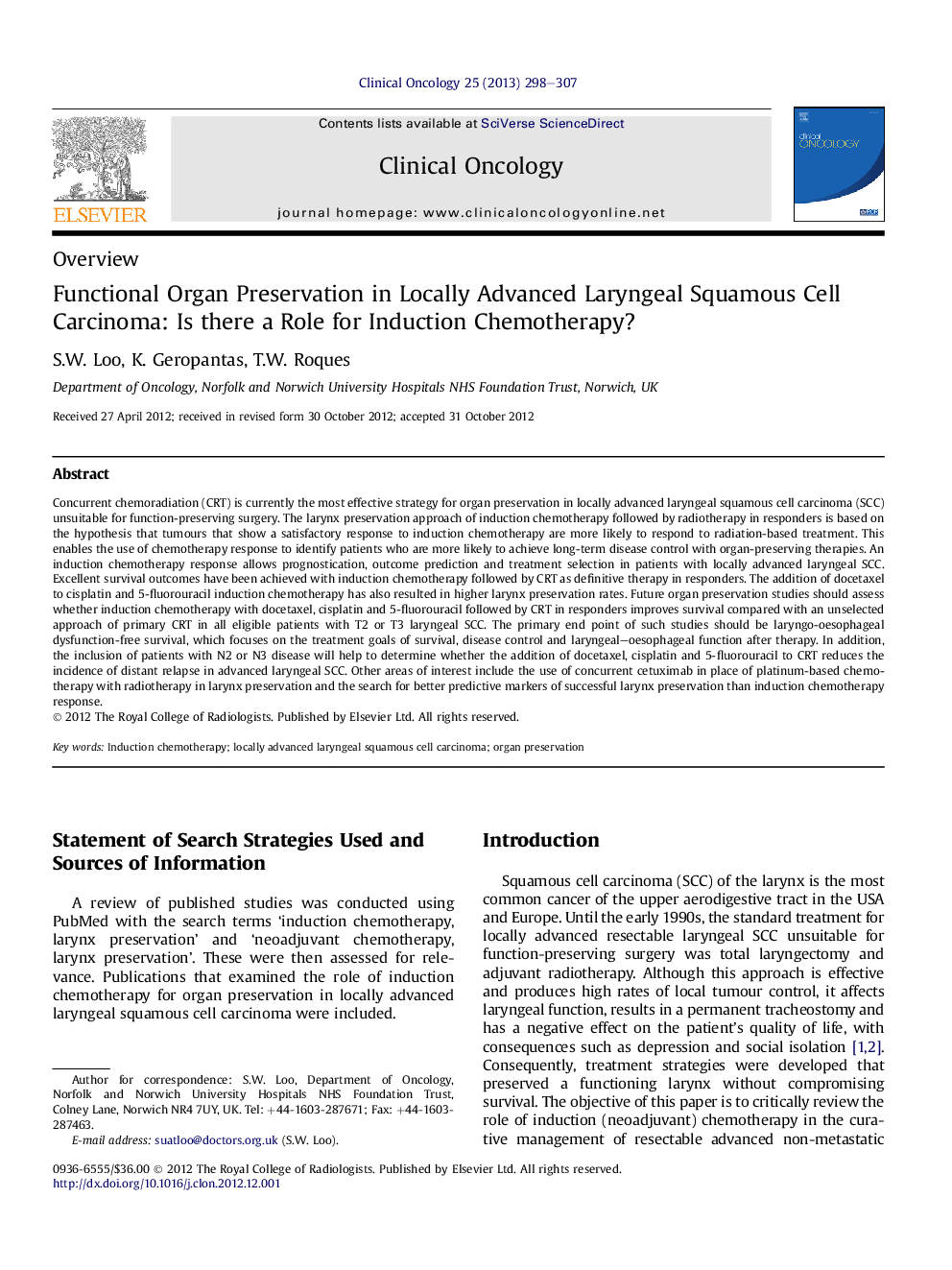| Article ID | Journal | Published Year | Pages | File Type |
|---|---|---|---|---|
| 5698900 | Clinical Oncology | 2013 | 10 Pages |
Abstract
Concurrent chemoradiation (CRT) is currently the most effective strategy for organ preservation in locally advanced laryngeal squamous cell carcinoma (SCC) unsuitable for function-preserving surgery. The larynx preservation approach of induction chemotherapy followed by radiotherapy in responders is based on the hypothesis that tumours that show a satisfactory response to induction chemotherapy are more likely to respond to radiation-based treatment. This enables the use of chemotherapy response to identify patients who are more likely to achieve long-term disease control with organ-preserving therapies. An induction chemotherapy response allows prognostication, outcome prediction and treatment selection in patients with locally advanced laryngeal SCC. Excellent survival outcomes have been achieved with induction chemotherapy followed by CRT as definitive therapy in responders. The addition of docetaxel to cisplatin and 5-fluorouracil induction chemotherapy has also resulted in higher larynx preservation rates. Future organ preservation studies should assess whether induction chemotherapy with docetaxel, cisplatin and 5-fluorouracil followed by CRT in responders improves survival compared with an unselected approach of primary CRT in all eligible patients with T2 or T3 laryngeal SCC. The primary end point of such studies should be laryngo-oesophageal dysfunction-free survival, which focuses on the treatment goals of survival, disease control and laryngeal-oesophageal function after therapy. In addition, the inclusion of patients with N2 or N3 disease will help to determine whether the addition of docetaxel, cisplatin and 5-fluorouracil to CRT reduces the incidence of distant relapse in advanced laryngeal SCC. Other areas of interest include the use of concurrent cetuximab in place of platinum-based chemotherapy with radiotherapy in larynx preservation and the search for better predictive markers of successful larynx preservation than induction chemotherapy response.
Related Topics
Health Sciences
Medicine and Dentistry
Oncology
Authors
S.W. Loo, K. Geropantas, T.W. Roques,
